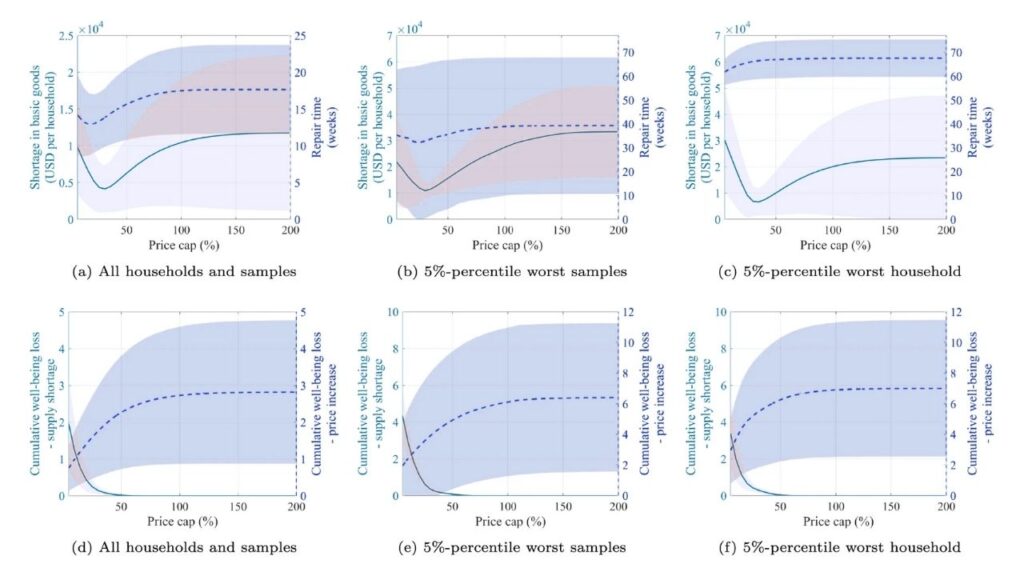In July 2025, Congress introduced a significant new bill called the Stop AI Price Gouging and Wage Fixing Act of 2025. This landmark legislation aims to ban companies from using artificial intelligence (AI) technology to unfairly raise prices or suppress wages based on your personal data. This practice, often called surveillance pricing, uses AI algorithms to analyze details like what websites you visit, your location, device type, or other private information to charge you differently or set your pay unfairly.

This article will unpack what surveillance pricing and AI-driven wage fixing mean, why this legislation matters, how it would protect consumers and workers, practical advice to protect yourself, and what lies ahead. The goal is to make this complex topic clear to everyone—from young readers to professionals—while providing actionable insights.
Table of Contents
Stop AI Price Gouging and Wage Fixing Act of 2025
| Topic | Details |
|---|---|
| Bill Name | Stop AI Price Gouging and Wage Fixing Act of 2025 |
| Introduced By | Congressman Greg Casar (D-Texas), Rep. Rashida Tlaib (D-Michigan) |
| Purpose | Ban AI-driven surveillance pricing and wage fixing using personal data |
| Data Used for Pricing/Wages | Browsing history, location, device type, financial info, shopping behavior |
| Affected Sectors | E-commerce, rideshare, airlines, retail, payroll, and more |
| Key Enforcement Agencies | Federal Trade Commission (FTC), Equal Employment Opportunity Commission (EEOC) |
| Consumer Rights | Allows consumers/workers to sue companies charging unfair prices or wages |
| Official Bill Information | Casar’s Office and Bill Details |
The Stop AI Price Gouging and Wage Fixing Act of 2025 represents a vital move to curb unfair exploitation of personal data by AI systems. By outlawing AI algorithms that inflate prices or suppress wages based on personal surveillance, it seeks to bring transparency and fairness back to the marketplace and workplace.
Consumers and workers stand to gain stronger protections and legal avenues for redress. Meanwhile, increased awareness about how AI shapes prices and wages is crucial as technology advances.
This bill is a forward-looking effort to ensure that AI serves society fairly rather than undermining trust and equity in the economy.
What Is Surveillance Pricing and Wage Fixing?
Surveillance pricing is when companies use sophisticated AI systems to collect and analyze your personal data—such as your browsing habits, your location, the device you use, and even your financial background—to charge different prices for the exact same product or service. This means two people can see very different prices on the same website without realizing why.
Imagine ordering a ride through a popular app. If your phone battery is low or you’re near a busy area, the AI might hike up your price. Airlines and online retailers use similar methods, adjusting ticket or item costs based on what their AI predicts you’re willing to pay.
Similarly, AI wage fixing happens when employers use AI tools to set workers’ pay based on personal data rather than job performance. This can unfairly lower wages for certain employees, perpetuating inequality while hiding behind automated decisions.
These practices raise serious privacy and fairness concerns because they exploit individuals’ private information without consent or transparency.
Why Has Congress Taken Action Now?
The use of AI in pricing and employment has rapidly expanded, often without consumers realizing they’re being treated unequally. In early 2025, the Federal Trade Commission (FTC) released a report confirming that major companies, including Mastercard, JPMorgan Chase, and Accenture, use personal data to adjust prices and wages.
Congressman Greg Casar, who spearheaded this legislation, stated, “Giant corporations should not be allowed to jack up your prices or lower your wages using data they got spying on you.” He emphasized that pricing and wages should be based on fair market factors such as supply, demand, cost of production, and job qualifications—not secret AI surveillance of personal lives.
As AI technology becomes more advanced, the risk of unequal, invisible discrimination grows. This bill is Congress’s response to protect fairness and transparency.

How the Stop AI Price Gouging and Wage Fixing Act Works
Key Provisions
- Ban on Surveillance-Based Pricing and Wage Setting: The bill prohibits companies from using AI algorithms that set prices or wages based on invasive personal data such as browsing history, location, financial details, race, or gender.
- Transparency and Legal Recourse for Consumers and Workers: Individuals harmed by these practices will have the right to sue offending companies.
- Strong Enforcement: The Federal Trade Commission (FTC), Equal Employment Opportunity Commission (EEOC), and state attorneys general will enforce the law to ensure compliance.
- Legitimate Pricing Practices Are Allowed: Discounts based on loyalty programs or openly disclosed criteria remain legal as long as they do not rely on surveilled personal data.
This comprehensive approach aims to protect consumers and workers against hidden, unfair price gouging and wage suppression enabled by AI.
Practical Advice for Consumers and Workers
Because AI surveillance pricing can be invisible to most users, being vigilant is essential. Here are steps to protect yourself:
- Be Mindful of Data Collection: Websites and apps track your online activities using cookies and other tools. Use privacy-focused browsers or plugins that limit tracking.
- Check Price Variations: When shopping online or using apps, notice if prices change dramatically. Try clearing your browser cache, using incognito mode, or switching devices to see if pricing changes.
- Understand Your Legal Rights: With this legislation, you gain the power to challenge unfair price discrimination or wage suppression if you can document it.
- Demand Transparency: Support calls for companies to disclose how their AI pricing and wage algorithms work.
- Protect Your Privacy: Incorporate good data hygiene—limit location sharing, disable unnecessary permissions, and stay informed about how your data is used.
Real-World Examples of Surveillance Pricing
- A food delivery app charging more if you order close to the restaurant because it predicts you’re less likely to cancel or shop elsewhere.
- Airlines raising prices on tickets after you repeatedly search for the same flight routes.
- E-commerce sites adjusting product prices based on the type of device you use (iPhone users might be shown higher prices, for example).
- Rideshare apps increasing fares when they detect your phone battery is low, assuming you’ll accept a higher price to avoid losing service.
FAQs About Stop AI Price Gouging and Wage Fixing Act of 2025
What exactly is “surveillance pricing”?
It’s a practice where AI uses your personal data—like location, browsing history, device type—to charge different prices for the same product or service tailored to you individually.
Why is AI-based wage fixing a concern?
Because it can unfairly lower wages based on personal characteristics unrelated to job qualifications or performance, exacerbating workplace inequality without transparency.
Who enforces the Stop AI Price Gouging and Wage Fixing Act?
The Federal Trade Commission (FTC), Equal Employment Opportunity Commission (EEOC), and state attorneys general will monitor and enforce compliance.
Are any pricing discounts still allowed?
Yes. Discounts and offers based on clear, non-discriminatory loyalty programs or memberships are permitted.
How can I protect my personal data online?
Use privacy settings on your devices, limit cookie permissions, browse in incognito mode, and stay support legislation that restricts unfair data use.
What Comes Next?
As the bill moves through Congress and gains attention, companies will need to reevaluate their AI pricing and wage-setting technology. Enforcement agencies will develop guidelines and begin monitoring for violations. Consumers and workers should stay informed and prepared to assert their rights.
This legislation could set an important precedent for regulating AI-driven economic practices, balancing technological innovation with fairness and privacy.



















